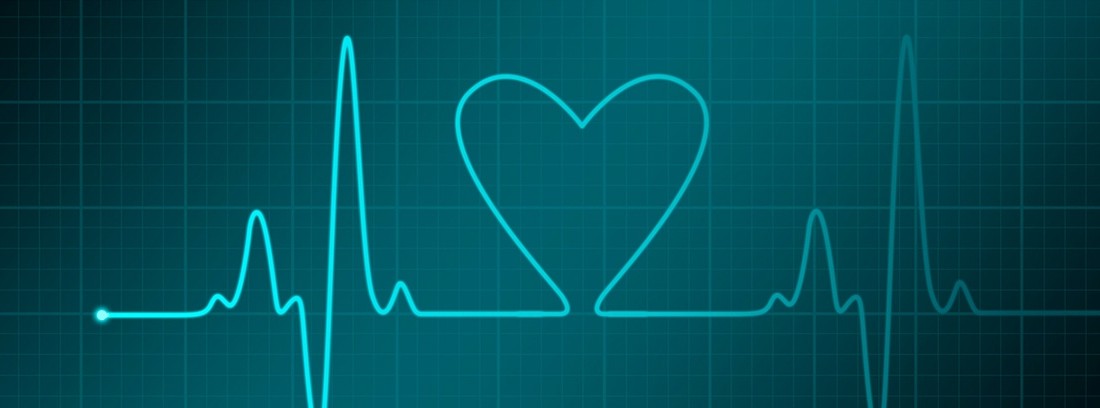Electrophysiological study

Definition
The heart is a complex viscus made up mainly of muscle tissue. The heartbeat is the product of the synchronous contraction of the heart. This is possible thanks to a specific nervous tissue or conduction tissue that allows the diffusion of cardiac electrical activity. The nerve impulse is conducted from the upper chambers of the heart or atria to the lower chambers or ventricles. If there is any dysfunction in the electrical transmission, the production of the beat will be altered and will lead to arrhythmias.
An electrocardiogram will be performed before any patient with symptoms that suggest the presence of a cardiac arrhythmia. Sometimes it will allow the arrhythmia to be identified but other times more complex studies will be required to reach a diagnosis. The electrophysiological study is a procedure that evaluates the electrical activity of the heart. It can be associated with therapeutic techniques, such as the destruction or ablation of the abnormal conduction tissue. An electrocatheter and an electrocardiographic recording are required for the study. The electrocatheter consists of a thin wire capable of transmitting an electrical current through the heart tissue. The EKG will detect the heart rhythm and the changes induced by the EKG.
How is the study done?
The study is carried out in the hospital setting. The patient should lie down on the examination table. Electrodes will be placed on your chest to take an EKG recording and monitor your heart rhythm during the test. Some sedative drugs may be administered to relax the patient, although they will remain awake during the test and will be able to communicate with healthcare personnel. If the study is carried out in children or uncooperative patients, it can be carried out under general anesthesia. Local anesthesia will be applied to the puncture site. The puncture is performed in the femoral vein at the level of the groin, although in some cases it can be done through the veins in the left arm. If the veins described were very fine or obstructed, it would be necessary to puncture both femoral veins, the subclavian vein (under the clavicle) or the jugular vein (neck).
Electrocatheters will be introduced through venipuncture. They are very thin electrical cables that are advanced through the veins guided by X-rays until they reach the heart. These electrodes also receive signals from the heart, in this way the heart rhythm can be recorded to evaluate the possible presence of abnormalities. They are placed in specific places in the heart to study their spontaneous electrical activation, under electrical stimulation or after the administration of certain drugs. During the study, controlled arrhythmias can be caused that require an electric shock for their treatment, which will be applied under general anesthesia.
The approximate duration of the procedure is 2 hours, although due to the difficulty of some cases it may be longer.
Preparation for the study
A fast of at least six hours must be maintained before the test is performed. During the procedure, general anesthesia may be indicated, so a previous study must be available that includes an electrocardiogram, chest X-ray and laboratory tests with coagulation tests. The study is generally carried out without the effect of antiarrhythmic drugs, so the physician responsible for the care will individually assess the prior withdrawal of drugs.
What does it feel like during and after the study?
The usual discomforts of the procedure are those derived from punctures, palpitations that may occur during the study and the immobilization that has to be maintained during the procedure and for the following 6-12 hours. Also, when doctors cause an arrhythmia, you may experience palpitations, shortness of breath, chest pain, or loss of consciousness. If there have been no complications, the patient is discharged the day after the electrophysiological study.
Study risks
It is an invasive examination, but the risk of complications during the procedure is still low. The risk must be assessed individually and may be related to the arrhythmia under study together with the other underlying medical conditions of the patient.
The main complications are bleeding and infection at the puncture site and catheter insertion. Uncommonly, bleeding or thrombosis may occur at the puncture sites. Exceptionally, serious complications that endanger the life of the patient may occur, such as perforation of the heart or a large vein, injury to a coronary artery, acute myocardial infarction, embolism, arrhythmias or serious allergic reactions to local anesthetics.
Study contraindications
In patients with coagulation disorders, the risk of the intervention will be assessed. During the examination, different drugs can be used to treat or induce arrhythmias, for which the contraindications of these treatments should be evaluated individually.
Reasons why the study is carried out
The cardiologist will indicate the electrophysiological study in those situations in which the presence of a cardiac arrhythmia is suspected and it is considered appropriate to complete the study as well as to propose possible pharmacological treatments, implantation of pacemakers or defibrillators. The study may also be indicated in patients at risk of future arrhythmic cardiac events or sudden death.
(Updated at Apr 14 / 2024)